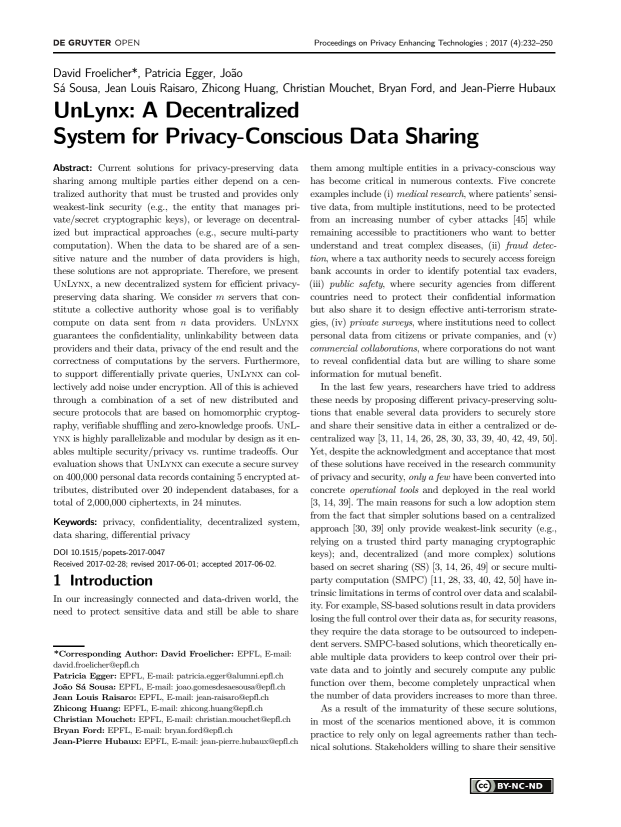UnLynx: A Decentralized System for Privacy-Conscious Data Sharing
Authors: David Froelicher (EPFL), Patricia Egger (EPFL), João Sá Sousa (EPFL), Jean Louis Raisaro (EPFL), Zhicong Huang (EPFL), Christian Mouchet (EPFL), Bryan Ford (EPFL), Jean-Pierre Hubaux (EPFL)
Volume: 2017
Issue: 4
Pages: 232–250
DOI: https://doi.org/10.1515/popets-2017-0047
Abstract: Current solutions for privacy-preserving data sharing among multiple parties either depend on a centralized authority that must be trusted and provides only weakest-link security (e.g., the entity that manages private/secret cryptographic keys), or leverage on decentralized but impractical approaches (e.g., secure multi-party computation). When the data to be shared are of a sensitive nature and the number of data providers is high, these solutions are not appropriate. Therefore, we present UnLynx, a new decentralized system for efficient privacypreserving data sharing. We consider m servers that constitute a collective authority whose goal is to verifiably compute on data sent from n data providers. UnLynx guarantees the confidentiality, unlinkability between data providers and their data, privacy of the end result and the correctness of computations by the servers. Furthermore, to support differentially private queries, UnLynx can collectively add noise under encryption. All of this is achieved through a combination of a set of new distributed and secure protocols that are based on homomorphic cryptography, verifiable shuffling and zero-knowledge proofs. UnLynx is highly parallelizable and modular by design as it enables multiple security/privacy vs. runtime tradeoffs. Our evaluation shows that UnLynx can execute a secure survey on 400,000 personal data records containing 5 encrypted attributes, distributed over 20 independent databases, for a total of 2,000,000 ciphertexts, in 24 minutes.
Keywords: privacy, confidentiality, decentralized system, data sharing, differential privacy
Copyright in PoPETs articles are held by their authors. This article is published under a Creative Commons Attribution-NonCommercial-NoDerivs 3.0 license.

